“A Character that is Truly My Own”
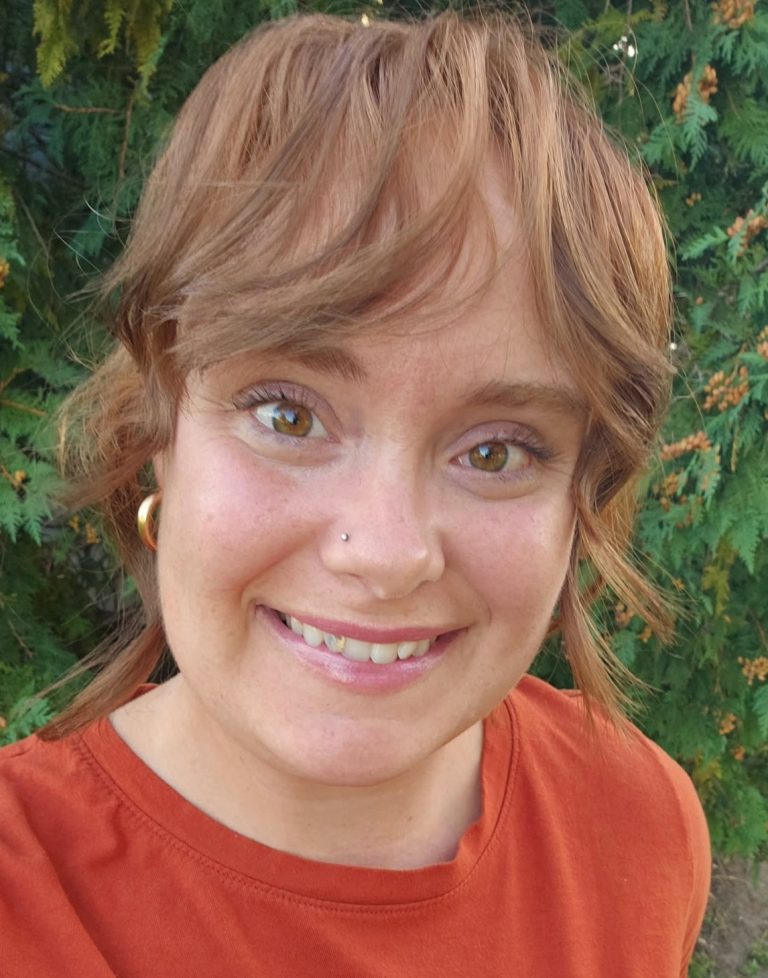
Many years ago, when I was a young girl attending an Amish school in northeastern Ohio, I had a friend named Ruth. I felt privileged to have her as a friend because my family’s reputation was so poor in the community. Ruth’s family was considered “mission-minded” because they talked openly about what it means to be “good Christians” and I felt honored to be friended by someone from the Joe Yoder family.
Ruth and I used to sleep over at one another’s homes. We competed for the second-best grades in school. (We had a genius classmate, so there was no way we could compete with him.) And at school we would stick together when the other girls made fun of my sisters and me.
There were times when Ruth disappointed me. When we were in third grade, she once ganged up on me at a church service with the “click” of other girls by going into a room and slamming the door in my face when I followed them. I felt betrayed because I thought we were friends.
When we were getting to the age when we knew we would be going through the rite of passage of changing our girl dresses to women’s dresses and following the young women into a church service instead of following our mothers, I suggested several times that we do this on the same day. She became quiet and didn’t respond, just as she did when I tried talking about what I was enduring in my home life.
Then one Sunday Ruth showed up at church with her new dress, cape, and apron. Her mother had made a nice blue dress for her, and she looked beautiful. I felt disappointed that my friendship meant so little to her that she didn’t tell me beforehand so we could share this ritual. She acted demure, but it was clear she loved the attention she was getting in church.
Soon after we graduated from eighth grade, she dropped the news on me that her family was moving to Michigan, where a new Amish community was being settled. She was happy about it, and it seemed to me that she didn’t understand that I would miss her and that my life would be lonely without her nearby. She promised to write to me, but she rarely did. Then about five short years later, I attended her wedding, and three short years after that I visited her as a young mother. During that visit, I sensed that not all was well. Her oldest daughter was two, and several times a day, that little two-year-old was being taken into the bathroom to be spanked, even though I couldn’t tell that she had done anything wrong. I finally asked Ruth what she had done wrong, and she said she didn’t want to talk about it.
Ruth’s second daughter was severely handicapped, and it was clear to me that Ruth was rejecting her. She asked me to hold her, “Because she doesn’t get held enough.” I was puzzled. Ruth was the mother, so why wasn’t she holding her child who so clearly needed to be held and cherished?
I tried talking with Ruth and her husband, Sam, about my home life as a child. They both became stone silent and looked out the windows as if they were embarrassed. I went to the bathroom to regain my composure, and learned my lesson well. Ruth could never offer me compassion for what I’d been through. I wondered again if maybe Ruth’s home life was not as happy and stable as what she and her family projected.
Over the years, Ruth and I have exchanged letters. She sometimes wrote to me around the birth of one of her 12 children, one who died at birth.
Earlier this year, my feelings that not all is well in Ruth world was confirmed when I read one of the essays from a ADSF scholarship application. Imagine my surprise when I recognized that Joseph Gingerich was Ruth’s son. In his essay, Joseph revealed several forms of abuse he endured as he was growing up. His younger sister, Rebekah, was also an applicant this year. So I have been in touch with both of them. Rebekah has offered her scholarship essay to be published here and on the ADSF blog. So without further ado, below is her story.
A Character that is Truly My Own
By Rebekah Gingerich
Clip clop, clip clop. I listened to the steady staccato of Sonny’s hooves on the blacktop and felt the familiar swaying rhythm of the horse-drawn carriage, or buggy, as we called it. A crisp October breeze swept through the open storm front, blowing a strand of hair out from underneath my bonnet. I tucked my black shoes up underneath my legs and wrapped the pinafore apron around my knees, shivering as I glanced anxiously up at my father’s face as he held the reins loosely in one hand, his grey eyes solemn under his wide-brimmed, yellow straw hat. I was 6 years old and attending first grade at the little, one-room Amish schoolhouse on top of the hill with 3 of my 11 siblings, and tonight, just before classes were dismissed, I had heard the creaky old entry door open and saw my Dat (PA Dutch for ‘father’) step into the foyer. He took a seat on the wooden bench at the back of the classroom, quietly observing while Teacher David wrapped up the day. After dismissal Dat sent my older siblings home, asking me to stay while he talked with the teacher. I had watched from the little activities table in the corner, and wondered about his serious face, and the dread I felt in my tummy. The other students left with their siblings, some walking, others on bicycles, and still others hitched the old family nag to their school hacks, shouting goodbyes and “See ya later, alligator!” as they rushed out of the driveway. Now we were heading home as well, and I wished Dat would speak. When he finally broke the silence, it was with questions: What did I do at school? Did I always obey Teacher David? Did I listen carefully to what he said? Did I do my assignments the way that he explained? I answered the best I could, not understanding. “Well,” Dat said, “Teacher David does not think that you understand what he wants you to do at school, and he says you don’t listen to him. We have decided to take you out of school. You will stay at home for the rest of this year and next year when you are older, you can try again. Tomorrow the children will bring your books home. We will practice your English at home, and maybe some flash cards.”
My mind spun. What about my little brown desk with the squeaky lid that opened and the wobbly wooden seat that Teacher David had adjusted to my height on the first day of school? What about my pack of 8 crayons? What about red and blue and yellow? I had just learned to read those words in English, contrary to the unwritten German dialect we spoke at home. What about Spunky the Donkey, (Learning Numbers with Spunky, Schoolaid Math) who helped me learn Math by counting the haybales on his wagon? And what about Jason, my only classmate? He would be alone now. “Why?” I asked my father. “Maybe you are too young,” he answered. “You are the baby in our family and often the youngest ones are spoiled and not ready for school.” I was silent, knowing that any display of disappointment would be seen as non-acceptance and be punished with spanking. When they brought my books home the next day, I looked through them and wondered why I had done such a bad job, with so many of Teacher David’s big red frownie faces drawn at the top of the pages. Why had I not understood? Why had I not listened? I felt ashamed. Now I had to wait until next year and be in a class with kids younger but smarter than myself, because they could do it, and I couldn’t. And somehow, being the youngest in my family meant that I would always be behind, never quite as smart as the rest.
There was a lot of chaos at home; Dat had unpredictable, violent mood swings resulting in abusive behavior towards my mother and us kids. Mom tried to be a submissive Amish hausfrau, believing that the Amish way would somehow make it all better, but became passive-aggressive instead. One of my older sisters, who was severely mentally impaired, passed away when I was in third grade, and subconsciously I hoped this would relieve some of the stress in my parents’ relationship, but grief only escalated the situation. All this tension I carried with me to school, and it clouded my ability to think critically and learn effectively. I struggled through the rest of my school years, always with a sense of futility, getting mostly B’s and Cs with a smattering of A’s. I was especially challenged in subjects such as math, where there was an absolute right or wrong answer. It seemed whenever I thought I had mastered a concept, I would miss one small step which resulted in the wrong answer. But what I did love was books. Whenever I had a spare minute, I would have my nose in a book. The Little House books, by Laura Ingalls Wilder, and the Anne of Green Gables series (L.M. Montgomery) were some of my favorites, as well as any Civil War era/Underground Railroad/Black slavery history, whether true or fictional. I loved animal classics such as Old Yeller (Fred Gipson), Man O’ War (Walter Farley) and Rascal, (Sterling North). Stories about the Western frontier were devoured, and the historical novels about Sacajawea and other Native American history. The World Wars, Holocaust and US Presidents were of interest, and what I couldn’t find in the history books at school, I searched for in the old Encyclopedia set- it was my Google. I geeked out on ancient Egyptian history, especially the pyramids; and the history of Rome. I read any books or ancient documents about events that can be read about in the Bible because they offered a more secular view. One was the Roman documents about the life of Jesus Christ: it gave a perspective one might not find in typical Christian literature. I loved poems that told stories and memorized them. I didn’t mind writing short stories and poetry.
I graduated after completing the Eighth Grade at age 15, which is typical for Amish students. Over the next several years I occasionally substituted for several of my older siblings, who were teaching at local Amish parochial schools. When I was 19, the neighborhood school board asked if I would teach at the little white schoolhouse where I had attended, and after some contemplation I agreed. Maybe I could help create an experience for my students that was different from mine. I wanted to fan the curious spark all kids seem to possess and turn learning into something fun and exciting instead of a never-ending grind. So, I dug in. That first year I taught grades 1, 2 and 3, ages 6 through 10, with only 7 students- 6 girls and 1 little boy. I taught “Reading, ‘Riting and ‘Rithmetic”, incorporating all 5 senses whenever I could. I tried to take a step back from traditional grading and graded on effort and comprehension. I loved seeing the sparkle in their eyes when we wrestled with a puzzling concept and won, and whenever we had spare moments, I took them away from the main classroom (outside if it was warm) and read to them the stories I loved as a kid, or books they had brought to share. We memorized the basics of math and reading using poetry and song lyrics, and the older ones helped the younger ones with flash cards and words when I was busy with another class.
Over the next several years I taught all 8 grades, but I burnt out quickly. I was still living at my parents’ house and still trying to deal with trauma experienced as a kid, and the darkness I increasingly felt in the Amish culture. I felt within myself that there must be a different way to live life, to think about life. So, I started seeing a therapist and soon realized that while I have a passion for living well, maybe it is adults, not children that I hope to walk with. Since the Amish church I was a member of in Michigan didn’t allow people to seek professional mental and emotional well-being, I knew I had to move to a more open Amish environment and said goodbye to my students and my parents and moved to northern Indiana to live with a sibling. Over the next several years I could feel my outlook in life shifting and felt more strongly the benefits of learning life skills and how not only the Amish culture but society as a whole is desperately looking for purpose and meaning in life, and there is nowhere nearly enough Social Workers / Psychotherapists in our area to keep up with the demand. I knew this was an opportunity to make a difference, but how was I to accomplish any such mission without an education? And how was I to receive the desired education within a culture that believes higher education makes a person worldly and prideful? Did I have the emotional stability to sustain such a great culture change, if I were to leave the Amish and follow my dream? Would I be able to bear the rejection of friends and family without becoming weak and mean? I teetered on the fence of indecision, knowing in my heart what I needed to do, but wanting to build the strength I knew I needed. In May of 2023, I quietly moved away from my Amish neighborhood and moved in with a non-Amish friend. Since I had not completed high school, I took GED classes so I could move forward with an education. It wasn’t until later that year that I applied at Indiana University, South Bend and began my first semester in January 2024. It has been quite interesting, this shift from living without electricity and driving a horse and buggy to learning how to drive a car at age 28, and from recognizing the mindset I had been taught: that everything is black and white, right or wrong; to realizing that there are so many different ways of living and doing and thinking, and I want to experience as much of that as I can. Andrew Delbanco, a professor at Columbia University, in his article “What is College For?”, quotes Matthew Arnold’s words: “[Education]… turning a stream of fresh and free thought upon our stock notions and habits.” (17). I want every thought, habit, or tradition I ever entertained or embraced to be challenged, shaken, and turned upside down, to develop a character that is truly my own.
Recently I read a piece titled “Of the Coming of John”, by W.E.B. Du Bois from The Souls of Black Folk. In it, he describes John’s journey through education, who was the first Black person in his community to go to college. When John arrived at college “He was…never able to work consecutively at anything. He did not know how to study; he had no idea of thoroughness”. (3) Du Bois does not describe him as being harsh or harmful; there seems to be a thread of innocence in his lack of decorum. I felt, in reading it, that I could somehow relate to this seemingly undisciplined behavior, and to John’s response after he was suspended for his careless actions: “When he came back to us he went to work with all his rugged strength. It was a hard struggle, for things did not come easily to him, —few crowding memories of early life and teaching came to help him on his new way; but all the world toward which he strove was of his own building, and he builded slow and hard.” (13) It is the same for me: there is precious little, if anything, from my earlier life that is here to help me through college. While there is a certain number of people who leave the Amish, only a very small percentage of those attempt higher education; the idea that it is unnecessary or even harmful is deeply embedded in our thinking, as well as the mindset that we know it all already. It is my hope that college can be an aid in removing these blinders from my vision, for I do believe that the more we learn, the more we become aware of how little we know. I want to remain hopeful in working towards my goal and remember that nothing may come of this—success is not a given, especially considering my background. If I can leave at the end of 4 years, or 6, with a more rounded approach in how I view the world, and if knowledge can create more empathy towards myself and my fellowman, then it will be of utmost value to the quality of my life.
Note: For those who may know me personally, I was born in Northern Michigan, and my early years were spent there until I was 11. At that point, my parents and several siblings and I moved to Northern Indiana, where I continued my education. This move marked a significant transition in my life, as I had to adapt to a new environment and school system. When I was 17, my parents moved back to Northern Michigan, bringing my older sister and me along. These moves, though not directly related to my academic journey, played a crucial role in shaping my adaptability and resilience. Later, in my mid-twenties, I once again moved from Michigan to Indiana.
I hope you enjoy reading Rebekah’s story as much as I did. As always, should you feel inspired to donate to ADSF, please visit our Donate page. We thank you in advance for your contribution.
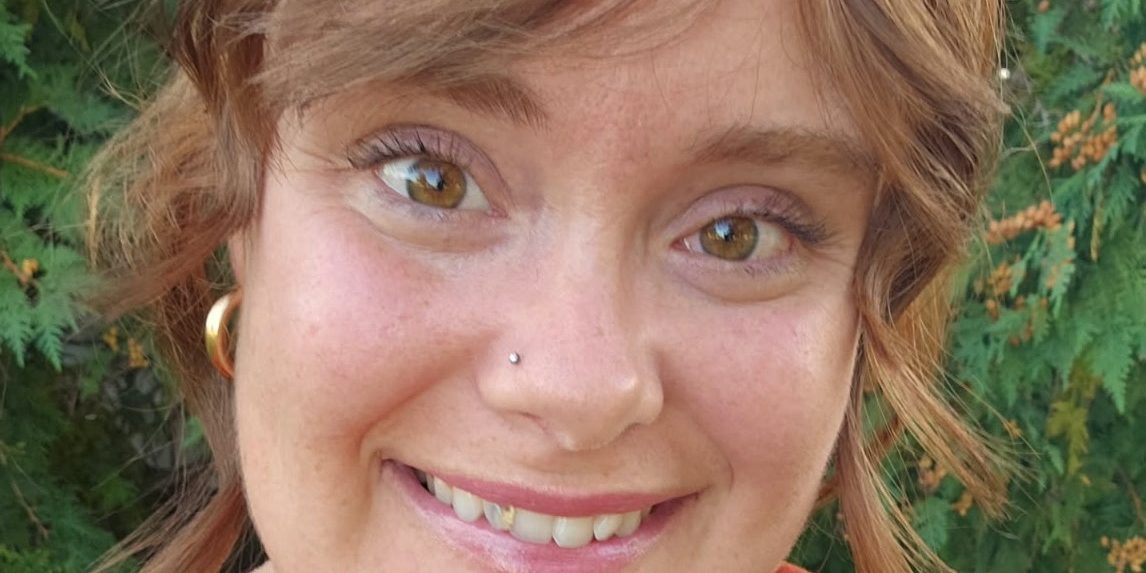
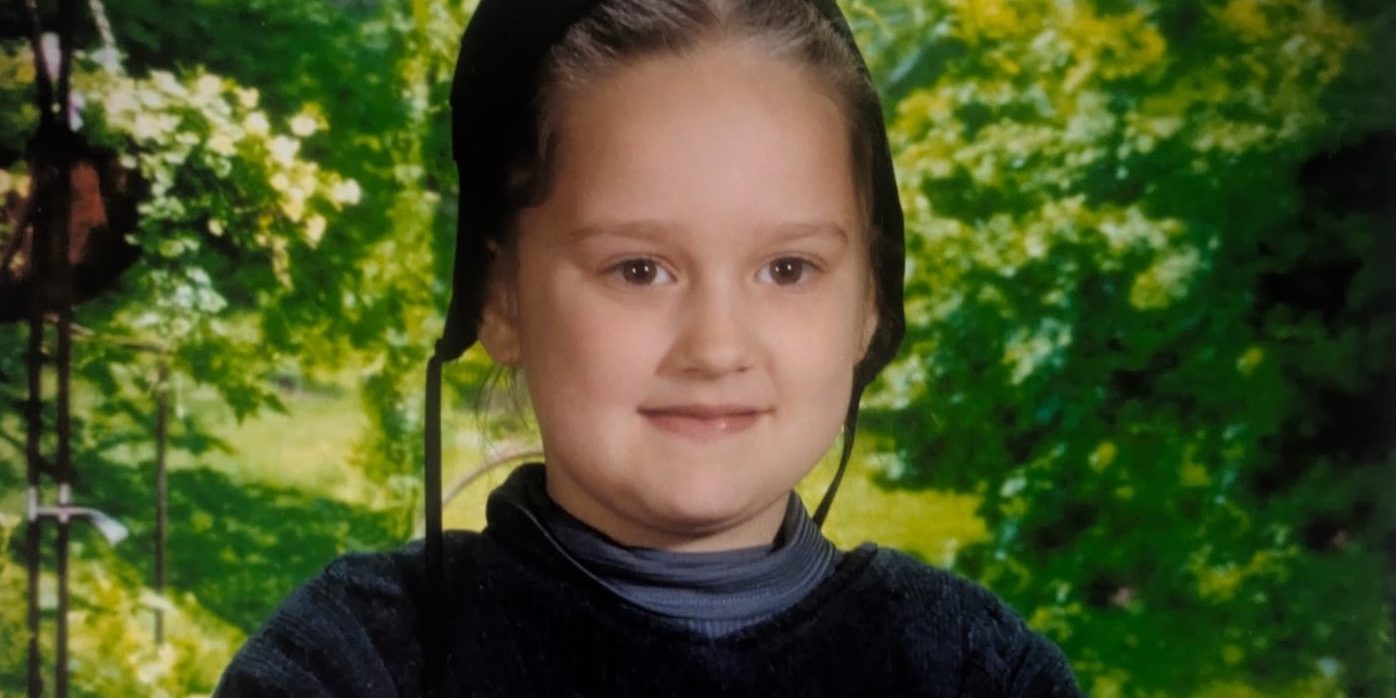
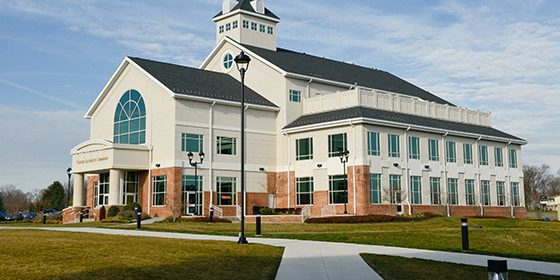
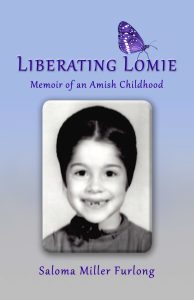
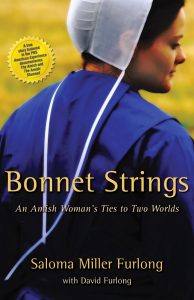
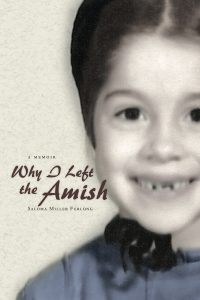
Welcome to IUSB, Rebekah! My alma mater! the campus looked very different back in 1991 when I graduated. The grounds are beautiful today. God bless your adventure!
Thank you, Aleta! I appreciate IUSB 😁
Although I did not grow up Amish, I can relate to your experiences with attitudes toward education. When I went to college, I felt similarly about re-examining all the ways that I had looked at the world through new eyes.
You worked really hard and continue to do so. Good job.
Also, have fun learning and choosing who you are and your path. We always get to choose.
Thank you Birgit for your encouraging words! I will remember to have fun 🌞!
Rebekah I am so unbelievably proud of you. I remember how excited and happy your oldest sister and I were the day you were born. We were jumping up and down and shouting your name to the universe . I left the Amish when you were still quite young and I’m guessing no one was really allowed to talk about me after that. But I also got my GED and then a college degree. I only got an Associate Degree but I am doing exactly what I love with that Degree.
I am so sorry about some of those childhood experiences you had, especially the first grade rejection that is just so wrong , I had no idea that happened . I always knew something wasn’t right in your home but I didn’t know what it was. One day I will tell you the story of how I tried, as a very young teen to stand up for Joseph!!! But I don’t think it did any of us to much good.
Rebekah to say I am proud of you is an under statement. Your writing is amazing and you are obviously very talented!!! . Go get that education!!!! However big or small!!!! Follow your goals !!!! Follow your dreams !!!! And follow happiness!!!! It is allowed!!!!! If you ever want to reach out to me I would love that , but I also understand if you don’t .
Hi Cousin 😀
Thank you 🩷
Would you like to correspond?
rebekahgin95@gmail.com
Hi Rebekah,
I am Carol (Gingerich) Romero, my mom and your mom were first cousins. I left Mio in 2001 so I’m sure you never heard of me, or not good things.
What you are doing, and what you have accomplished is something you should be so proud of! I am proud of you!!
I know leaving is not easy, and not having all of your family support you is hard. Not hearing those simple words “We are proud of you!” from family can be very hard, but never forget there are many good people in the real world, who will support you!
I know you will go far, and higher education is so important! I was able to get my high-school diploma, then I joined the military. I was able to eventually get a bachelor’s degree, and a Masters degree. I also started my own business. (All things Amish women cannot do) So continue your hard work and dedication and know, you will do amazing things. you inspire me!!
Carol,
Yes, I remember you, fondly. I remember being allowed to sit with you in church, (probably between 2-4 years old) and I felt special and loved, and I thought you were beautiful. You and Joe Eichers’ girls are hazy but comforting memories. Thank you for reaching out; I have thought of you from time to time over the years and am proud of your accomplishments as well. Maybe in some ways, it was girls like you who planted a seed in me?